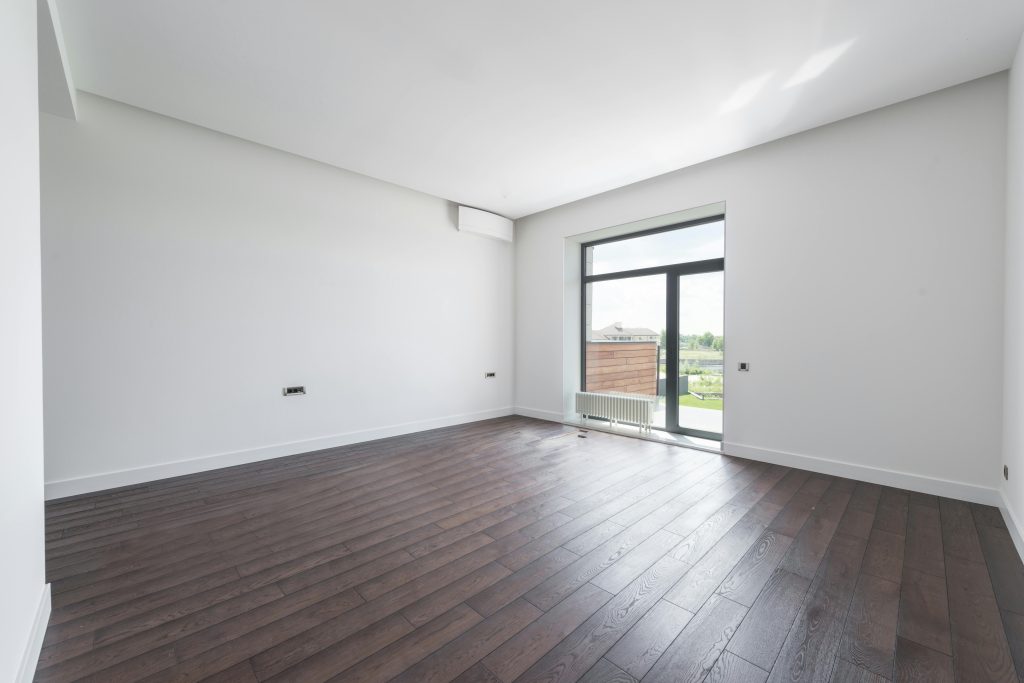Choosing the right estate agent when selling your home makes a huge difference to your overall experience. Taking time to interview estate agents will help you pick someone who’ll work hard for you while marketing your home effectively and handling the whole process professionally.
That’s because finding the right agent all starts with asking the all-important questions. But what are these important questions? Here are the 16 essential questions to ask, for all sellers , plus 5 extra questions at the end if you’re selling a flat.
1. What fees and commission do you charge?
Estate agents typically charge between 1% to 3% of the sale price plus VAT. But don’t just focus on the percentage. Instead, ask what’s included in their fee, as some agents charge extra for professional photos, floor plans or featured listings on property portals like Rightmove and Zoopla. Ask for a complete breakdown in writing and watch for agents who quote fees without VAT as the VAT will we added on top. Also ask about any charges apply if your property doesn’t sell, or you change agents.
2. What’s your sales success rate?
The sales success rate reveals how effective an agent really is at selling homes. Enquire about what percentage of their listed properties actually sell, and how that compares to local averages. Good agents should be happy to share specific numbers. Also ask about their price achievement rate, the difference between initial asking prices and final sale prices. This shows how accurately they value properties and their negotiation skills. High success rates often justify higher fees.
3. How will you market my property?
Professional marketing makes a difference to your sale price and speed. The agent should detail their exact marketing plan that goes further than simply listing on Rightmove and Zoopla. Ask about professional photography, detailed floor plans and video tours. They should explain which other property websites they’ll use, if they will promote on social media strategy and if they’ll email to their database of buyers. Find out if they do open houses and how they’ll advertise locally.
4. How do you set the asking price?
Ask to see data from recent sales of similar properties nearby as it shows their knowledge on the local market. Top agents study factors like property size, condition, unique features and location specifics. They should explain how school catchment areas, transport links and local developments affect your price. Beware of agents who suggest unrealistically high prices just to win your business. You’ll likely find that this often leads to price reductions later and longer selling times.
5. Who handles the viewings?
Some agents send experienced staff who know your property’s selling points and can answer buyer questions effectively. Others might use junior staff or expect you to conduct viewings yourself. Check if they pre-screen viewers to avoid time-wasters, and how they arrange viewings outside office hours. Look at if they accompany every viewing, as unaccompanied viewings can pose security risks and miss opportunities to sell your home’s benefits properly.
6. What’s your experience with similar properties?
Local knowledge matters enormously. The agent should know your street’s history, recent sales and upcoming changes. Ask how many properties they’ve sold in your area in the last year. They need detailed knowledge of local amenities, transport links, schools and neighbourhood characteristics. Agents that know their stuff tell buyers about aspects like nearby parking situations, local planning changes in the area and area demographics. It all affects your sale price.
7. How long does it usually take to sell a property like mine?
The agent should give you realistic timeframes based on current market conditions and local sales data. Ask about average selling times for similar properties and what factors might speed up or slow down your sale. They should explain how different pricing strategies affect selling time, and what they’ll do if your property hasn’t sold within their estimated timeframe. Get specific examples of similar properties they’ve sold recently.
8. What’s your contract tie-in period?
The typical tie-in period ranges from eight to 16 weeks, but some agents demand longer. Understand exactly how long you’re committed and what happens if you’re unhappy with their service. Check for notice periods and early termination fees. Multi-agency agreements usually have different terms than sole agency contracts. A common attribute of a multi-agency agreement is it comes with higher fees. Clarify what happens if you find a buyer yourself during the tie-in period.
9. How do you handle offers?
Your agent should verify a buyer’s finances before bringing offers to you. They should research each buyer’s position, whether they need a mortgage, have one agreed, are in a chain or can pay cash. Ask how they negotiate between multiple buyers to get you the best price. They should explain their process for communicating offers promptly, advising you on their strength and handling counteroffers. Look for agents who qualify buyers properly to avoid sales falling through.
10. Can you advise on preparing the property for sale?
Experienced agents spot simple improvements that could potentially boost your sale price. They should advise on aspects like decluttering, repairs, decoration and curb appeal, ideally with specific suggestions. Ask if they have trusted contractors for necessary work. Some agents offer professional staging advice or services. Get their tips on presenting your home for photos and viewings, including quick fixes that make a big difference to buyer interest.
11. Will you help with the paperwork?
Your agent should guide you through the required documentation, from property information forms to energy performance certificates. Ask if they help gather necessary paperwork like building regulations certificates or planning permissions. Agents need to work closely with your solicitor to keep the sale moving. They should explain which documents you need and help you obtain them, reducing delays later.
12. Are you part of a professional body?
Membership in organisations like NAEA Propertymark or RICS shows commitment to professional standards. These bodies require members to follow strict codes of conduct, carry insurance and keep up with industry changes. Ask about their qualifications and any extra training. Professional membership often means better handling of problems and access to complaint procedures if things go wrong.
13. Will you highlight key features during viewings?
Make a list of important selling points agents might miss. This might include things like a new boiler, extended boundaries or special access rights. They should know about any improvements you’ve made and their cost. The best agents emphasise features that justify your asking price and match buyers’ priorities. They should point out potential for improvement or unique aspects that similar properties don’t offer.
14. How will you tell buyers about local developments?
Property values often rise with area improvements. Your agent should know about upcoming transport upgrades or new schools, shopping centers and regeneration projects. They should explain these to buyers as selling points. Ask how they stay informed about local planning applications and council developments, or if they understand how future changes might affect your property’s value and marketability.
15. How do you explain running costs?
Buyers need accurate information about ongoing costs. Your agent should communicate council tax bands, typical utility bills and maintenance expenses. They should understand your property’s energy rating and what it means for heating costs. Good agents help buyers understand the real cost of ownership, preventing surprises that could derail sales later.
16. Will you check if buyers are in a chain?
Chain-free buyers often offer smoother, faster sales. Your agent should investigate each buyer’s position and explain the implications to you. They need to check if buyers have sold their property, are first-time buyers or need to sell before buying. Understanding the chain situation helps you choose between offers based on likelihood of completion, not just price.
Pro-tip: Consider selling your property without an estate agent
Skip the hassle and expense of using an estate agent by selling directly to Property Rescue. Since we’re the buyer, you don’t need anyone to find or vet potential purchasers. We guarantee to buy your property, making the whole process simpler, faster and more certain than a traditional sale. With no estate agent fees to pay and all legal costs covered, you’ll know exactly how much money you’ll receive from the sale.
Extra questions for leasehold properties
Leasehold sales account for around 23% of property transactions in the UK. If you have a leasehold property, be sure to check that the agent understands the ins and outs of selling a leasehold property.
1. How will you explain lease terms?
The lease length significantly affects property value and mortgage options. Your agent should understand and explain your lease details accurately to buyers. They should know how to communicate ground rent, service charges and remaining lease length. A top agent will explain these costs upfront to prevent sales falling through when buyers learn about them later.
2. Can you explain service charges and ground rent?
These ongoing costs matter hugely to buyers. Your agent should clearly explain current charges and any planned increases. They need to understand the service charge history and what it covers. Expect your agent to obtain up-to-date service charge accounts and ground rent details to share with buyers.
3. What about lease extensions?
Short leases can make properties harder to sell and mortgage. Your agent should understand the lease extension process and costs. They need to explain options to buyers and how lease length affects value. Good agents know which lenders will consider properties with shorter leases and can advise on timing of extensions.
4. Can you explain property restrictions?
Leases often restrict property alterations and use. Your agent should understand and communicate these limitations to buyers, explaining any requirements for landlord permission for changes. They need to help buyers understand what they can and can’t do with the property under the lease terms.
5. How will you handle management questions?
Buyers need to understand how the building is managed. Your agent should know who handles maintenance and how decisions are made. They should be able to give an explanation of service charge budgets and major works planning while discussing the management company’s effectiveness and any planned significant works.
Agents in the know
Having a well-informed agent who can answer these questions thoroughly will help with achieving a better sale price and smoother transaction. Take time to compare different agents’ responses before making your choice. And if you’re looking to sell your house fast and skip the agents altogether, get a free, no-obligation quote from Property Rescue.









